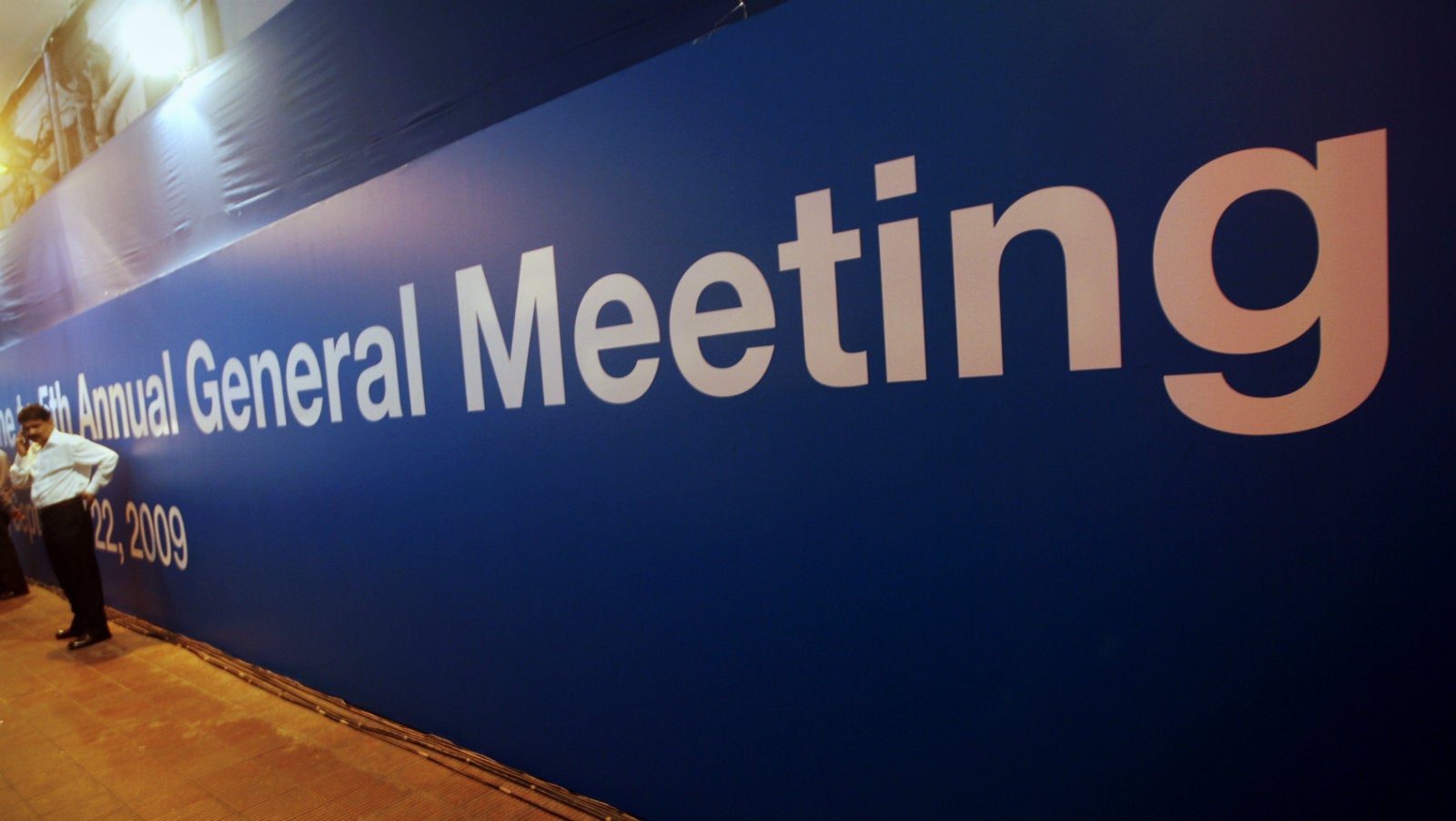You can tell an Indian firm is struggling by when it hosts its shareholder meeting
“Delay the bad news” seems to be the mantra in India Inc.


“Delay the bad news” seems to be the mantra in India Inc.
Companies that have performed badly in a financial year typically hold off their annual general meetings (AGM) till the very end of the season, according to a study by Institutional Investor Advisory Services (iIAS), a proxy advisory firm.
An AGM, the yearly gathering of shareholders and the management, is mandatory for listed Indian firms. During these meetings, the management presents the annual financial performance and addresses shareholder concerns. The June-to-September period is the AGM season. Most companies close their annual books on March 31 and take a few months to arrange AGMs.
Firms that hold their AGMs in September (towards the end of the season), “have the lowest median return on equity compared to companies that hold their AGMs in June or July or August,” an iIAS study has found. The study focused on firms in the S&P BSE 500 index, which represents some 93% of the total market capitalisation on BSE.
Delaying the AGM gives firms the opportunity to showcase the next financial year’s first quarterly (April-June) earnings report, which could overshadow the previous financial’s lows.
The median return-on-equity for the 180 firms that held AGMs in September in the financial year 2015-16 was 11.9%. Compare that to 15.8% and 16.4% for those that organised AGMs in August and July respectively.
Lower returns apart, many companies that held late AGMs were even loss-makers. Of the 477 S&P BSE 500 companies that closed their annual account books on March 31, 2016, upto 64 reported losses. Thirty of these loss-makers held their AGMs in September, the iIAS study pointed out.
iIAS has conducted similar studies since 2013 to confirm the pattern. “We published the first one in 2013, not knowing whether the correlation we saw on performance and AGM dates would continue. Four years later, corporate India continues to remain predictable,” iIAS said in the report.